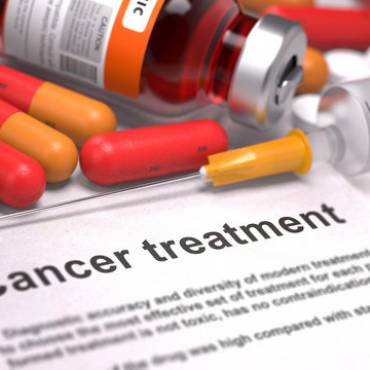Many people survive cancer every year. When the problem is diagnosed at an early stage, treatment is more likely to be successful. Therefore, detecting cancer early can make a big difference. Many men who have been diagnosed with this life-threatening disease never imagined they could even acquire it.
Men tend to ignore symptoms of sickness, and visits to a physician’s office. A preventing screening can help find cancers or other health issues when they are at their earliest stages. Finding cancer early, and getting treated, gives you a better chance of beating the disease. After evaluating your condition, your physician will recommend treatment for cancer that best suits your condition.
Common Symptoms of Cancer
- Changes in the bowel movement-The occasional bowel problem is normal, but changes in the activity of bowel, or worse, having diarrhea or constipation continuously may be a sign of colon or rectal cancer. Unexplained stomach aches are one of the first signs colon cancer. Those with pancreatic cancer have a complaint of a dull ache that feels like it’s pressing inward. Cancer of colon can occur in any part of your colon, while rectal cancer can affect your rectum, which is linked to the anus. Men with liver cancer describe stomach cramps and upset stomach so frequently that their physicians thought they had had ulcers. Patients with liver cancer and leukemia may have complained of stomach pain resulting from an enlarged spleen, which feels like an ache on the lower left side of the stomach.
If you are suffering from stomach pain, then there are chances that you can attribute to a digestive system problem that troubles you or doesn’t go away. In this case, ask your healthcare specialist to consider an ultrasound or other, diagnostic test. Detecting cancer in its early stage can make a huge difference in treatment. Cancer therapy stops the growth of abnormal cells in your colon.
- Unexpected weight loss-It becomes hard to maintaining body weight as you age, so you might consider losing some pounds as a good sign. But when you are not trying to lose weight, or you notice a sudden weight loss can be a sign of cancer, infection, or chronic conditions. If you rapidly lose weight without adjusting your diet or undergoing am intense workout session, discuss with your healthcare specialist.
- Difficulty swallowing-Having swallowing problem can be the first sign of lung cancer. Patients with lung cancer may feel pressure and soreness while swallowing and unlike cold and flu, the problem didn’t disappear in a few days. You need to consult your healthcare specialist if you have a frequent feeling of clearing up your throat or feeling like food is stuck somewhere in your chest. This indicates the narrowing of the esophagus, which confirms the presence of a tumor. Your healthcare specialist will suggest treatment for cancer cells to prevent multiplication of cancer cells in your lungs.
- Abnormal bleeding-Abnormal bleeding should always be investigated. For example- blood in the urine, coughing up blood, or blood in semen. Men are not only warned about blood in urine, but they should also aware of danger sign associated with the blood in semen. Presence of blood in semen can be the first sign of prostate cancer.
- Testicular lumps in men-The lump is not always painful, this is the reason why a man cannot feel it. Patients with testicular cancer may have swollen or enlarged testicles, but can’t feel a lump. Some individuals may file complaints of discomfort from the enlargement but not pain.
- Enlarged lymph nodes-There can be numerous causes for enlarged lymph nodes, and cancer is amongst the one. See if the enlargement does not go away or is not related to any health issue, then it is important to consult your healthcare specialist to find out the cause.
- Breast lumps-Breast cancer in men is not common, but it does occur. Like women, breast cancer in men cause lumps in the breast, skin changes may also occur like dimpling, and changes in the nipples such as redness or scaling.
- Fatigue-This symptom is very hard to pinpoint because almost all chronic health issues can cause fatigue. But persistent or worsening fatigue should not be ignored, especially when there is no possible reason behind the symptom. It can be a sign of cancer; you should consult with your physician for a cancer cure.



